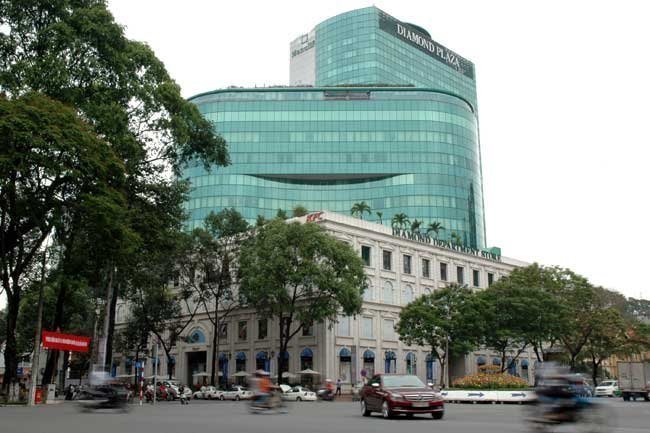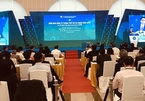 |
|
An office and commercial building complex in HCMC’s District 1. HCMC joins a growing list of cities from Colombo to Kuala Lumpur that aim to become international financial hubs
|
In a blog post, Donald Lambert, principal private sector development specialist at ADB’s Southeast Asia Department, made his recommendations based on information discussed at the 2019 HCMC Economic Forum, held last month, which focused on turning the city into a global financial center.
With key financial reforms, Lambert stated, the southern metropolis has the potential to follow the models of Tokyo, Shanghai, Mumbai and other global cities that have achieved financial prominence.
“HCMC joins a growing list of cities from Colombo to Kuala Lumpur that have announced their intentions to become international intermediators of capital,” he said.
He pointed out the best approach for most countries, including Vietnam, is to first focus on becoming a national financial center. Vietnam has high investment needs. For infrastructure alone, the annual investment demand is estimated at US$18 billion-US$20 billion.
If HCMC can become an increasingly effective intermediator, raising capital efficiently not only from domestic sources but also international ones, it will not only drive the development of Vietnam’s real economy but also develop the skills and experience necessary to transform from a national financial center to an international one.
“A national and later global financial center will require investment in physical infrastructure as well as education and training, but policy reforms are the sine qua non. Indeed, global financial centers across the world share some common characteristics,” remarked the expert.
The country is in need of a comprehensive legal framework. “International investors need clear laws that are predictably enforced,” he added.
Vietnam currently has several important laws that need to be strengthened while others need to be introduced, including the Law on Securities; the Law on Credit Institutions; and a law on public-private partnerships to attract more investment into domestic securities, banking and infrastructure.
Meanwhile, solid market infrastructure plays a crucial role in the ambitious scheme.
“Investors are drawn to markets where they can complete trades efficiently and cost-effectively. Vietnam is lagging in several key areas. Real time gross settlement and delivery-versus-payment are under development,” he noted.
He claimed that the netting regime does not meet international standards and forces foreign banks to hold extra capital against exposure in Vietnam. Also, the country does not have a market-determined, short-term benchmark interest rate, which is “a cornerstone for so many other components of a modern capital market.”
On the third aspect, he stated that investors want predictability. “The implication is that monetary policy decisions must be made with a certain degree of independence. This includes foreign exchange rate flexibility, interbank interest rate stability and inflation targeting,” he explained.
The final point is that Vietnam has committed itself to adopting the Financial Action Task Force’s recommendations on anti-money laundering and combating the financing of terrorism.
“These are critical to ensure that foreign banks and investors can transact safely in the domestic market,” he said.
Vietnam’s growth trajectory only amplifies HCMC’s opportunities. By 2050, Vietnam is projected to be among the 20 largest economies in the world.
“If HCMC, in coordination with the central government, can apply these key financial reforms, it has the potential to follow the models of Tokyo, Shanghai, Mumbai and others that achieved global financial prominence by first funding the development of their own domestic economies,” he said. SGT
Thanh Thom

Devising strategies for a global financial centre
In the context of many nations developing their international financial centres, Vietnam may also begin to follow suit.

HCM City to improve legal framework as it aims to become international financial centre
A “sound economic and legal environment” that supports an open and efficient market is needed to turn HCM City into an international financial centre, experts said on Oct 18 at a two-day international economic forum.
 An expert at the Asian Development Bank (ADB) has recommended several ways to help transform HCMC into a financial center.
An expert at the Asian Development Bank (ADB) has recommended several ways to help transform HCMC into a financial center.